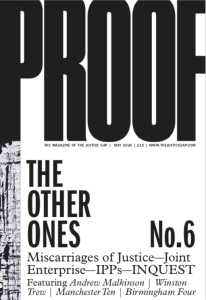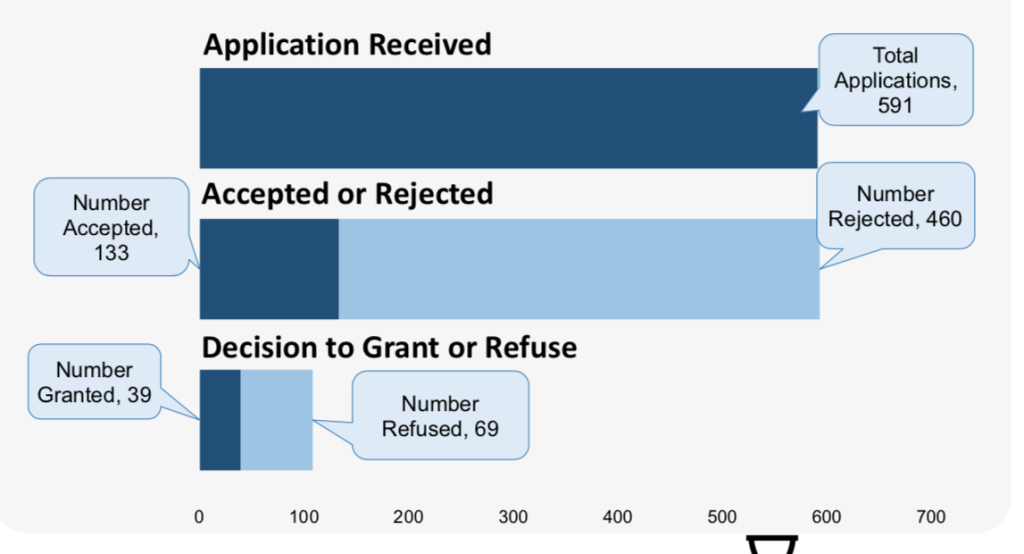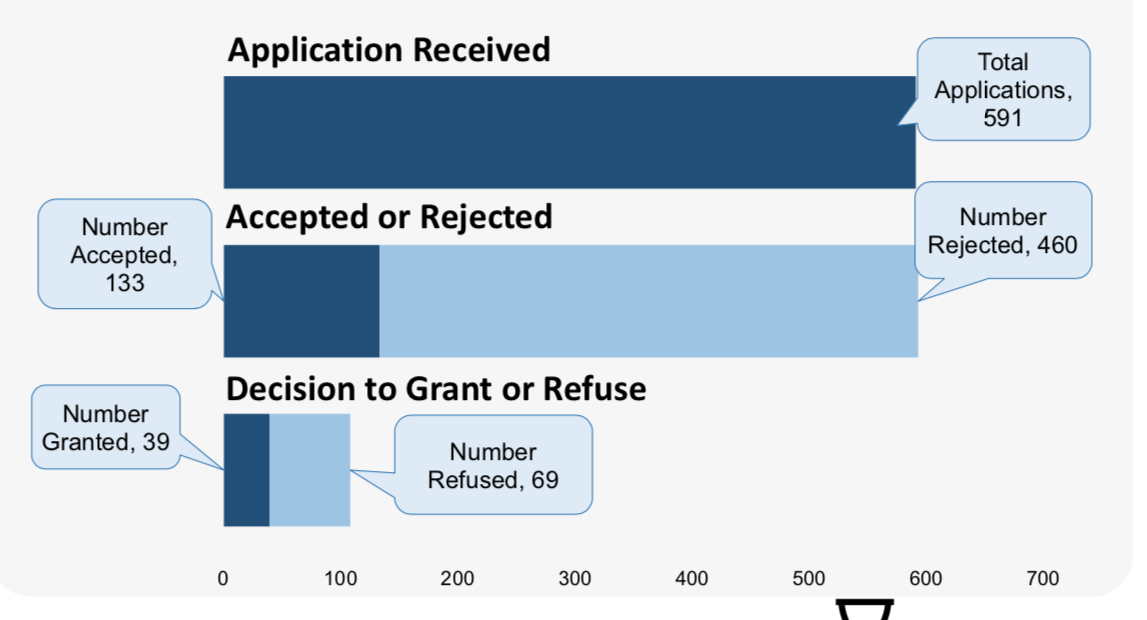Less than 7% of applications for compensation by victims of miscarriages of justice have been successful in the last eight years following a change in the law by the Coalition government effectively cutting off payouts introduced ten years ago. New statistics from the Ministry of Justice of revealed just 39 applications made under the ‘section 133’ scheme were between April 2016 and March 2024 from a total total number of 591 applications. The MoJ awarded 35 claimants £2.4m over that period – a fraction of the more then £81 million paid out between 1999 and 2007 when there were 306 successful applicants (see here).
 This was an issue that featured in the last issue of the Justice Gap’s PROOF magazine published this month.
This was an issue that featured in the last issue of the Justice Gap’s PROOF magazine published this month.
As reported by the Justice Gap, the victims of miscarriages of justice are now expected to be able to prove their innocence ‘beyond reasonable doubt’ as a result of the 2014 law change that stopped compensation pay-outs in almost all cases. In 2006, the New Labour government axed the old ex gratia scheme under which those payouts had been made leaving just the statutory scheme under thee Criminal Justice Act, section 133.
The Coalition government further undermined the far less generous ‘section 133’ arrangements with its 2014 legislation which restricted payouts to those people who could demonstrate their innocence ‘beyond reasonable doubt’.
In the latest issue of PROOF, Matt Foot, the co-director of APPEAL, argued that the 2014 test was ‘an affront to victims of miscarriages of justice and to the presumption of innocence and should be abolished’. As part of its response to the Law Commission’s ongoing review of criminal appeals, APPEAL has recommended the creation of an independent body to determine whether applicants are eligible for compensation. ‘Victims of miscarriage of justice on release from prison should receive an immediate interim package of support to allow them to rehabilitate into the community,’ Foot writes. ‘They should be provided therapeutic care to help deal with the long-term impact of their incarceration.’ The solicitor is representing Sam Hallam who was denied compensation after having his conviction overturned in 2012. In July last year his compensation case was heard by the Grand Chamber of the European Court of Human Rights along with Victor Nealon.
‘The question they are dealing with is a simple one,’ Foot writes for PROOF. ‘Does the new test for compensation offend the presumption of innocence? Hopefully the Court will confirm that the provision of compensation only to those who can prove beyond all reasonable doubt their innocence is incompatible with Article 6 of the European Convention.’
Buy PROOF, support the Justice Gap








